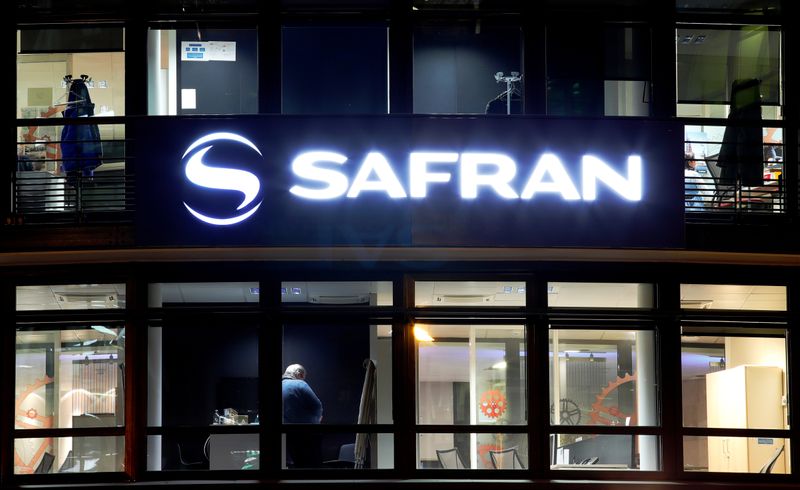By Tim Hepher
PARIS (Reuters) -Jet engine maker Safran (PA:SAF) said the worst of the coronavirus crisis was over but took a cautious view on long-term airline traffic in a continuing stand-off with Airbus over proposed increases in jetliner production.
The French aeronautics supplier also placed almost a third of its recently acquired Zodiac Aerospace business under review, while targeting higher revenues and margins over five years.
CEO Olivier Andries said Safran remained committed to building enough engines to allow Airbus to meet a firm output target of 65 A320s a month in 2023, up some 50% from crisis-hit levels, but that it was too early to commit to more.
Airbus has asked suppliers to explore rates as high as 75 a month by 2025 based on its forecasts of strong demand for the sought-after medium-haul category as the pandemic eases.
A decision on this would need to be made by mid-2022.
Engine makers are cautious about joining planemakers, notably the current volume leader Airbus, in raising new output because they fear it will accelerate aircraft retirements and dampen lucrative repairs demand demand, or else be short-lived.
Safran co-produces engines for the single-aisle category with General Electric (NYSE:GE) through their joint venture CFM, which according to Safran has 72% of the market against rival Pratt & Whitney, owned by Raytheon Technologies (NYSE:RTX).
Andries said Safran sees air traffic demand growth in the medium-haul sector for A320s and Boeing (NYSE:BA) 737s rebounding to 4.9% a year on average between 2023 and 2025.
But 20-year annual growth for all traffic combined, of which medium-haul has the biggest chunk, would average 2.9% compared with forecasts from Airbus and Boeing at or close to 4%.
“We have a (demand) vision which is more prudent than the planemakers,” Andries said, adding “3% is not nothing, it is very significant and will stay above world GDP.”
Safran did not rule out targeted acquisitions where they make sense while considering shedding some ex-Zodiac activities.
Safran agreed to buy Zodiac in 2017 to create the world’s third largest aerospace supplier after cutting its offer following a string of profit warnings from the aircraft seat maker, and completed the deal the following year.
Safran said ahead of an investor presentation on Thursday that a re-assessment of the legacy Zodiac business had led to 70% of the business “confirmed as core and 30% under review.”
Safran declined to identify the activities under review, but recently-appointed CFO Pascal Bantegnie said weakly defended or least profitable activities might be sold.
The renamed Safran Seats and Safran Cabin businesses, part of the company’s Aircraft Interiors division, are both set to reach breakeven in 2022 and double-digit profitability by 2025 and “take advantage of the recovery of a severely hit market”.
Safran also outlined group targets for 2021-2025 including compound average growth of 10% or more in revenues and around 15% in the widely watched aftermarket for civil jet engines.
It forecast an operating margin of 16-18% by 2025 and said it would return to a 40% dividend payout for its 2022 finances.

